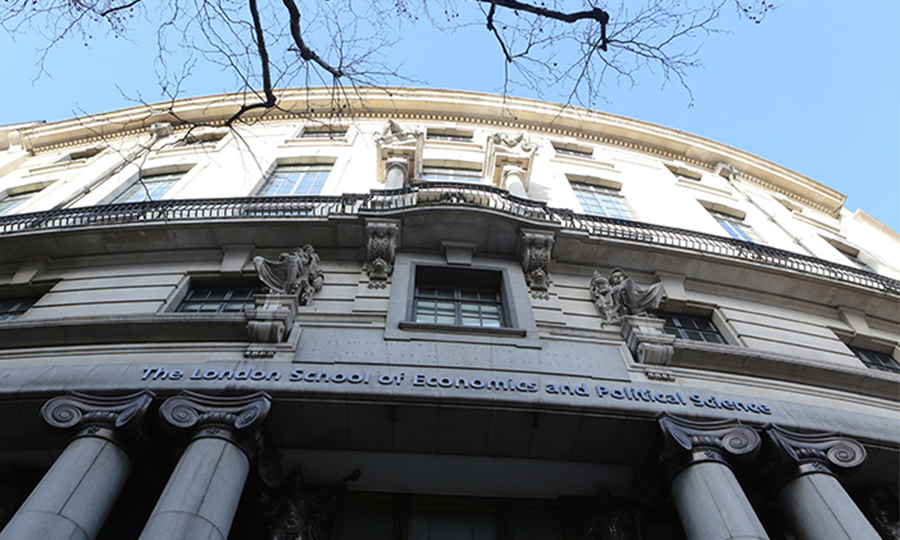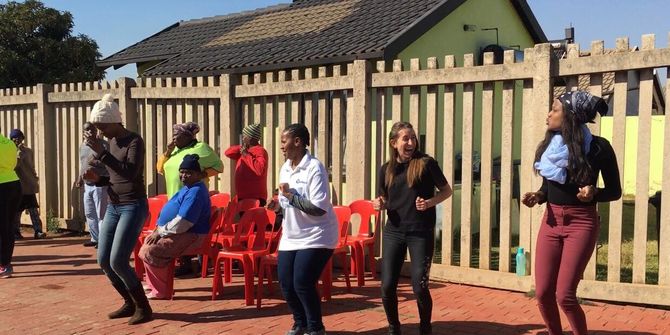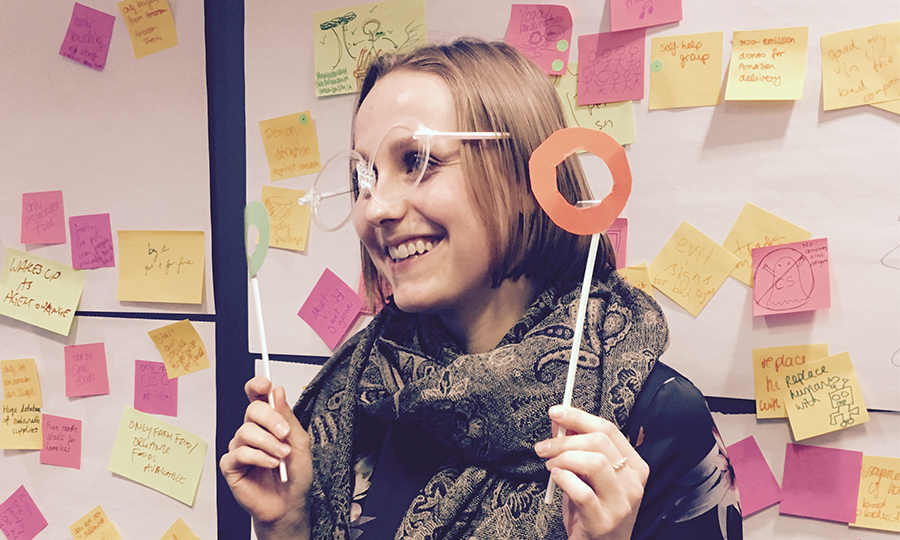This week, Department of Management student Luca Feser begins his month as CEO of the Swiss division of The Adecco Group, a global workforce solution provider. In this interview, Luca talks about how he has been selected for the position, his plans as CEO and how LSE changed his perspective on the future. Luca is a student in the Management of Information Systems and Digital Innovation programme.
So how did you hear about this programme?
I heard about it last year on social media. At the time, I knew I wasn’t strong enough as a candidate, but once I had begun my MSc in Management of Information Systems and Digital Innovation (MISDI) I felt ready to apply. I wanted to work for an innovative, forward-facing company with a real impact on the people’s lives, and The Adecco Group fitted that description perfectly.
What did your Master’s programme give you?
It’s given me an in-depth perspective on new technology – we cover artificial intelligence, and this was a big draw for The Adecco Group. As a leader in the recruitment field, they have to continuously seek out and utilise the latest innovations to improve the matching of candidates to jobs. That’s why I think my Master’s gave me an advantage in the selection process.
Also, I feel that I now have greater maturity to make split-second decisions – an important quality in any leader.
What did the selection process involve?
In Switzerland alone, there were over 1500 applicants. The process involved questions about your character and what you’d do in a given situation. It was followed by a video interview, pre-recorded with the CEO of The Adecco Group Switzerland, asking ‘how would you do this?’ ‘How would you handle the pressure?’ and so on.
After that we had a 104-question personality test. It sounds daunting, but there’s no right or wrong. If your personality isn’t the right fit for the company, then it’s probably for the best for all parties that it’s identified early.
By spring, I was in the final 15. A face-to-face Skype interview with a recruiter, with a lot of focus on social media, as this is an important area for The Adecco Group. Upon making the final five candidates, I was called to an assessment centre in Zurich. This comprised of four sections – a series of quickfire two-minute interview with five members of the AdeccoGroup Switzerland’s management board.
Afterwards, we had a one-to-one with the CEO herself, which lasted 20 minutes. As if this wasn’t comprehensive enough, we then had two hours to prepare for a presentation – we pretended to be a start-up propounding AI to The Adecco Group. Here MISDI was very helpful. We finished with a panel discussion focusing on hot topics such as labour laws in Switzerland. This was really fun. To test how you deal with difficult scenarios, the panel host would put words in your mouth (‘Luca, last week you said this – why?’). Although it was lengthy, I really enjoyed the process as it proved that while your CV is important, your personality is even more so.
What are your plans as CEO?
I want to spend the month learning about how I can help more people at the Adecco Group. But I also want to use my month as a springboard for my future career, which I hope will be at the Adecco Group.
As a national CEO for One Month of an Adecco Group country, we can apply to be global CEO – where you shadow Alain Dehaze for a month. During your month as local CEO, you can apply through an innovation project.
Mine will focus on education and training, especially in regards to AI. What training do people need now? Which jobs will be redundant? No-one wants to spend years learning something which will be obsolete. So how will you retrain yourself? For our generation this will be key.
Two years ago, the girl who was selected for the global CEO position did so with an innovation project focusing the refugee crisis – they took her on and now she is leading the project. That’s why it’s such an incredible opportunity. The leaders take it very seriously; they’re genuinely looking for innovation and creativity.
One former local CEO formed a start-up, which The Adecco Group later bought. So having gotten this role, you can go very far. They’re a very broad company.
What will your day to day life look like as CEO of The Adecco Group Switzerland?
I’ll gain an insider’s view of what life is like for Nicole Burth Tschudi, Swiss CEO – how does she find work life balance? It’s very important nowadays. Everyone expects something from the CEO, from shareholders returns to the lowest employees, which can mean a lot of pressure on your time. She has children and she’s very sporty, so how does she do it?
Also, I want to learn about stakeholder management. She has meetings with, say, the marketing department, followed by the finance team. How does she balance the different needs that the department has? Every month she has 1-1 meetings with the team, and I’ll be sitting in those feedback sessions. I’m looking forward to seeing how she communicates with those employees.
What are your plans after you graduate?
I finish the MISDI programme in December 2018. Afterwards, I’d love to work for The Adecco Group. I’ve already seen what they do and it’s impressive. I’m particularly interested in Adecco Group X, which is their AI branch.
Beyond work, what causes are most important to you?
Education is very important to me. I mean that in a very broad perspective. I went to a school called Langley, which was like my home. I began at five years old and loved it. I love learning because of that school. I know that in 10, 20 years’ time, I want to give back to youth education.
Living in London, I’ve come to realise that there’s a huge need to do something about homelessness. There has to be a solution to integrate the homeless into our social system, which so far hasn’t been done very well. How can we create a system that helps people get back on their feet that sustains itself without needing constant external support? It’s a bit like the idea of ‘teach a man how to fish’…it’s that perspective of helping people to help themselves grow stronger, rather than throwing money at the symptoms rather than the causes.
I’m not determined to become a CEO at all costs. It’s more about what you accomplish along the way. As a generation glued to social media, we see the end product all the time, but we don’t see the process and journey they had to go through. Aspiring to the journey is so much more important than chasing the outcome, because it’s the journey that truly changes you.
Finally, what do you think LSE has given you and your career?
LSE exists to benefit society, and that’s reflected through its programmes of study. MISDI is particularly interesting in this regard – how does THIS affect society? It goes beyond the technology, asking important questions about implementation. You can create the greatest IT system in the world, with no bugs or issues, but how do you integrate it into business and society? That’s why AI is so big for us. LSE looks at the long term view, about impacting society, and this means that you emerge with a much more complete understanding of the world. That’s why LSE is so good at creating leaders. I used to ignore the longer perspective, but LSE has changed my view, making me look beyond the short-term. It changed me for the better.
Learn more about our MSc Management of Information Systems and Digital Innovation programme






